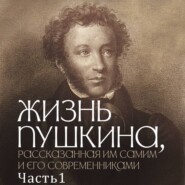По всем вопросам обращайтесь на: info@litportal.ru
(©) 2003-2025.
✖
The German Classics of the Nineteenth and Twentieth Centuries, Volume 02
Настройки чтения
Размер шрифта
Высота строк
Поля
Day came at last. The coachman brought round the carriage, and the hostess unlocked the door and went in. Ottilie was asleep in her clothes; she went back and beckoned to Edward with a significant smile. They both entered and stood before her as she lay; but the sight was too much for Edward. He could not bear it. She was sleeping so quietly that the hostess did not like to disturb her, but sat down opposite her, waiting till she woke. At last Ottilie opened her beautiful eyes, and raised herself on her feet. She declined taking any breakfast, and then Edward went in again and stood before her. He entreated her to speak but one word to him; to tell him what she desired. He would do it, be it what it would, he swore to her; but she remained silent. He asked her once more, passionately and tenderly, whether she would be his. With downcast eyes, and with the deepest tenderness of manner she shook her head in a gentle No. He asked if she still desired to go to the school. Without any show of feeling she declined. Would she then go back to Charlotte? She inclined her head in token of assent, with a look of comfort and relief. He went to the window to give directions to the coachman, and when his back was turned she darted like lightning out of the room, and was down the stairs and in the carriage in an instant. The coachman drove back along the road which he had come the day before, and Edward followed at some distance on horseback.
CHAPTER XVII
It was with the utmost surprise that Charlotte saw the carriage drive up with Ottilie, and Edward at the same moment ride into the court-yard of the castle. She ran down to the hall. Ottilie alighted, and approached her and Edward. Violently and eagerly she caught the hands of the wife and husband, pressed them together, and hurried off to her own room. Edward threw himself on Charlotte's neck and burst into tears. He could not give her any explanation; he besought her to have patience with him, and to go at once to see Ottilie. Charlotte followed her to her room, and she could not enter it without a shudder. It had been all cleared out. There was nothing to be seen but the empty walls, which stood there looking cheerless, vacant, and miserable. Everything had been carried away except the little box, which from an uncertainty what was to be done with it, had been left in the middle of the room. Ottilie was lying stretched upon the ground, her arm and head leaning across the cover. Charlotte bent anxiously over her, and asked what had happened; but she received no answer.
Her maid had come with restoratives. Charlotte left her with Ottilie, and herself hastened back to Edward. She found him in the saloon, but he could tell her nothing.
He threw himself down before her; he bathed her hands with tears; he flew to his own room, and she was going to follow him thither, when she met his valet. From this man she gathered as much as he was able to tell. The rest she put together in her own thoughts as well as she could, and then at once set herself resolutely to do what the exigencies of the moment required. Ottilie's room was put to rights again as quickly as possible; Edward found his, to the last paper, exactly as he had left it.
The three appeared again to fall into some sort of relation with one another. But Ottilie persevered in her silence, and Edward could do nothing except entreat his wife to exert a patience which seemed wanting to himself. Charlotte sent messengers to Mittler and to the Major. The first was absent from home and could not be found. The latter came. To him Edward poured out all his heart, confessing every most trifling circumstance to him, and thus Charlotte learnt fully what had passed; what it had been which had produced such violent excitement, and how so strange an alteration of their mutual position had been brought about.
She spoke with the utmost tenderness to her husband. She had nothing to ask of him, except that for the present he would leave the poor girl to herself. Edward was not insensible to the worth, the affection, the strong sense of his wife; but his passion absorbed him exclusively. Charlotte tried to cheer him with hopes. She promised that she herself would make no difficulties about the separation; but it had small effect with him. He was so much shaken that hope and faith alternately forsook him. A species of insanity appeared to have taken possession of him. He urged Charlotte to promise to give her hand to the Major. To satisfy him and to humor him, she did what he required. She engaged to become herself the wife of the Major, in the event of Ottilie consenting to the marriage with Edward; with this express condition, however, that for the present the two gentlemen should go abroad together. The Major had a foreign appointment from the Court, and it was settled that Edward should accompany him. They arranged it all together, and in doing so found a sort of comfort for themselves in the sense that at least something was being done.
In the meantime they had to remark that Ottilie took scarcely anything to eat or drink. She still persisted in refusing to speak. They at first used to talk to her, but it appeared to distress her, and they left it off. We are not, universally at least, so weak as to persist in torturing people for their good. Charlotte thought over what could possibly be done. At last she fancied it might be well to ask the Assistant of the school to come to them. He had much influence with Ottilie, and had been writing with much anxiety to inquire the cause of her not having arrived at the time he had been expecting her; but as yet she had not sent him any answer.
In order not to take Ottilie by surprise, they spoke of their intention of sending this invitation in her presence. It did not seem to please her; she thought for some little time; at last she appeared to have formed some resolution. She retired to her own room, and before the evening sent the following letter to the assembled party:
OTTILIE TO HER FRIENDS
"Why need I express in words, my dear friends, what is in itself so plain? I have stepped out of my course, and I cannot recover it again. A malignant spirit which has gained power over me seems to hinder me from without, even if within I could again become at peace with myself.
"My purpose was entirely firm to renounce Edward, and to separate myself from him for ever. I had hoped that we might never meet again; it has turned out otherwise. Against his own will he stood before me. Too literally, perhaps, I have observed my promise never to admit him into conversation with me. My conscience and the feelings of the moment kept me silent toward him at the time, and now I have nothing more to say. I have taken upon myself, under the accidental impulse of the moment, a difficult vow, which if it had been formed deliberately, might perhaps be painful and distressing. Let me now persist in the observance of it so long as my heart shall enjoin it to me. Do not call in any one to mediate; do not insist upon my speaking; do not urge me to eat or to drink more than I absolutely must. Bear with me and let me alone, and so help me on through the time; I am young, and youth has many unexpected means of restoring itself. Endure my presence among you; cheer me with your love; make me wiser and better with what you say to one another: but leave me to my own inward self."
The two friends had made all preparation for their journey, but their departure was still delayed by the formalities of the foreign appointment of the Major, a delay most welcome to Edward. Ottilie's letter had roused all his eagerness again; he had gathered hope and comfort from her words, and now felt himself encouraged and justified in remaining and waiting. He declared, therefore, that he would not go; it would be folly, indeed, he cried, of his own accord, to throw away, by over precipitateness, what was most valuable and most necessary to him, when although there was a danger of losing it, there was nevertheless a chance that it might be preserved. "What is the right name of conduct such as that?" he said. "It is only that we desire to show that we are able to will and to choose. I myself, under the influences of the same ridiculous folly, have torn myself away, days before there was any necessity for it, from my friends, merely that I might not be forced to go by the definite expiration of my term. This time I will stay: what reason is there for my going; is she not already removed far enough from me? I am not likely now to catch her hand or press her to my heart; I could not even think of it without a shudder. She has not separated herself from me; she has raised herself far above me."
And so he remained as he desired, as he was obliged; but he was never easy except when he found himself with Ottilie. She, too, had the same feeling with him; she could not tear herself away from the same happy necessity. On all sides they exerted an indescribable, almost magical power of attraction over each other. Living, as they were, under one roof, without even so much as thinking of each other, although they might be occupied with other things, or diverted this way or that way by the other members of the party, they always drew together. If they were in the same room, in a short time they were sure to be either standing or sitting near each other; they were only easy when as close together as they could be, but they were then completely happy. To be near was enough; there was no need for them either to look or to speak: they did not seek to touch one another, or make sign or gesture, but merely to be together. Then there were not two persons, there was but one person in unconscious and perfect content, at peace with itself and with the world. So it was that, if either of them had been imprisoned at the further end of the house, the other would by degrees, without intending it, have moved forward like a bird toward its mate; life to them was a riddle, the solution of which they could find only in union.
Ottilie was throughout so cheerful and quiet that they were able to feel perfectly easy about her; she was seldom absent from the society of her friends: all that she had desired was that she might be allowed to eat alone, with no one to attend upon her but Nanny.
What habitually befalls any person repeats itself more often than one is apt to suppose, because his own nature gives the immediate occasion for it. Character, individuality, inclination, tendency, locality, circumstance, and habits, form together a whole, in which every man moves as in an atmosphere, and where only he feels himself at ease in his proper element.
And so we find men, of whose changeableness so many complaints are made, after many years, to our surprise, unchanged, and in all their infinite tendencies, outward and inward, unchangeable.
Thus in the daily life of our friends, almost everything glided on again in its old smooth track. Ottilie still displayed by many silent attentions her obliging nature, and the others, like her, continued each themselves; and then the domestic circle exhibited an image of their former life, so like it that they might be pardoned if at times they dreamt that it might all be again as it was.
The autumn days, which were of the same length with those old spring days, brought the party back into the house out of the air about the same hour. The gay fruits and flowers which belonged to the season might have made them fancy it was now the autumn of that first spring, and the interval dropped out and forgotten; for the flowers which now were blooming were the same as those which then they had sown, and the fruits which were now ripening on the trees were those which at that time they had seen in blossom.
The Major went backward and forward, and Mittler came frequently. The evenings were generally spent in exactly the same way. Edward usually read aloud, with more life and feeling than before; much better, and even, it may be said, with more cheerfulness. It appeared as if he was endeavoring, by light-heartedness as much as by devotion, to quicken Ottilie's torpor into life, and dissolve her silence. He seated himself in the same position as he used to do, that she might look over his book; he was uneasy and distracted unless she was doing so, unless he was sure that she was following his words with her eyes.
Every trace had vanished of the unpleasant, ungracious feelings of the intervening time. No one had any secret complaint against another; there were no cross purposes, no bitterness. The Major accompanied Charlotte's playing with his violin, and Edward's flute sounded again, as formerly, in harmony with Ottilie's piano. Thus they were now approaching Edward's birthday, which the year before they had missed celebrating. This time they were to keep it without any outward festivities, in quiet enjoyment among themselves. They had so settled it together, half expressly, half from a tacit agreement. As they approached nearer to this epoch, however, an anxiety about it, which had hitherto been more felt than observed, became more noticeable in Ottilie's manner. She was to be seen often in the garden examining the flowers: she had signified to the gardener that he was to save as many as he could of every sort, and she had been especially occupied with the asters, which this year were blooming in beautiful profusion.
CHAPTER XVIII
The most remarkable feature, however, which was observed about Ottilie was that, for the first time, she had now unpacked the box, and had selected a variety of things out of it, which she had cut up, and which were intended evidently to make one complete suit for her. The rest, with Nanny's assistance, she had endeavored to replace again, and she had been hardly able to get it done, the space being over full, although a portion had been taken out. The covetous little Nanny could never satisfy herself with looking at all the pretty things, especially as she found provision made there for every article of dress which could be wanted, even the smallest. Numbers of shoes and stockings, garters with devices on them, gloves, and various other things were left, and she begged Ottilie just to give her one or two of them. Ottilie refused to do that, but opened a drawer in her wardrobe, and told the girl to take what she liked. The latter hastily and awkwardly dashed in her hand and seized what she could, running off at once with her booty, to show it off and display her good fortune among the rest of the servants.
At last Ottilie succeeded in packing everything carefully into its place. She then opened a secret compartment which was contrived in the lid, where she kept a number of notes and letters from Edward, many dried flowers, the mementos of their early walks together, a lock of his hair, and various other little matters. She now added one more to them, her father's portrait, and then locked it all up, and hung the delicate key by a gold chain about her neck, against her heart.
In the meantime, her friends had now in their hearts begun to entertain the best hopes for her. Charlotte was convinced that she would one day begin to speak again. She had latterly seen signs about her which implied that she was engaged in secret about something; a look of cheerful self-satisfaction, a smile like that which hangs about the face of persons who have something pleasant and delightful which they are keeping concealed from those whom they love. No one knew that she spent many hours in extreme exhaustion, and that only at rare intervals, when she appeared in public through the power of her will, she was able to rouse herself.
Mittler had latterly been a frequent visitor, and when he came he staid longer than he usually did at other times. This strong-willed, resolute person was only too well aware that there is a certain moment in which alone it will answer to smite the iron. Ottilie's silence and reserve he interpreted according to his own wishes; no steps had as yet been taken toward a separation of the husband and wife. He hoped to be able to determine the fortunes of the poor girl in some not undesirable way. He listened; he allowed himself to seem convinced; he was discreet and unobtrusive, and conducted himself in his own way with sufficient prudence. There was but one occasion on which he uniformly forgot himself—when he found an opportunity for giving his opinion upon subjects to which he attached a great importance. He lived much within himself, and when he was with others, his only relation to them generally was in active employment on their behalf; but if once, when among friends, his tongue broke fairly loose, as on more than one occasion we have already seen, he rolled out his words in utter recklessness, whether they wounded or whether they pleased, whether they did evil or whether they did good.
The evening before the birthday, the Major and Charlotte were sitting together expecting Edward, who had gone out for a ride; Mittler was walking up and down the saloon; Ottilie was in her own room, laying out the dress which she was to wear on the morrow, and making signs to her maid about a number of things, which the girl, who perfectly understood her silent language, arranged as she was ordered.
Mittler had fallen exactly on his favorite subject. One of the points on which he used most to insist was, that in the education of children, as well as in the conduct of nations, there was nothing more worthless and barbarous than laws and commandments forbidding this and that action. "Man is naturally active," he said, "wherever he is; and if you know how to tell him what to do, he will do it immediately, and keep straight in the direction in which you set him. I myself, in my own circle, am far better pleased to endure faults and mistakes, till I know what the opposite virtue is that I am to enjoin, than to be rid of the faults and to have nothing good to put in their place. A man is really glad to do what is right and sensible, if he only knows how to get at it. It is no such great matter with him; he does it because he must have something to do, and he thinks no more about it afterward than he does of the silliest freaks which he engaged in out of the purest idleness. I cannot tell you how it annoys me to hear people going over and over those Ten Commandments in teaching children. The fifth is a thoroughly beautiful, rational, preceptive precept. 'Thou shalt honor thy father and thy mother.' If the children will inscribe that well upon their hearts, they have the whole day before them to put it in practice. But the sixth now? What can we say to that? 'Thou shalt do no murder;' as if any man ever felt the slightest general inclination to strike another man dead. Men will hate sometimes; they will fly into passions and forget themselves; and as a consequence of this or other feelings, it may easily come now and then to a murder; but what a barbarous precaution it is to tell children that they are not to kill or murder! If the commandment ran, 'Have a regard for the life of another—put away whatever can do him hurt—save him though with peril to yourself—if you injure him, consider that you are injuring yourself;'—that is the form which should be in use among educated, reasonable people. And in our Catechism teaching we have only an awkward clumsy way of sliding into it, through a 'what do you mean by that?'
"And as for the seventh; that is utterly detestable. What! to stimulate the precocious curiosity of children to pry into dangerous mysteries; to obtrude violently upon their imaginations, ideas and notions which beyond all things you should wish to keep from them! It were far better if such actions as that commandment speaks of were dealt with arbitrarily by some secret tribunal, than prated openly of before church and congregation—"
At this moment Ottilie entered the room.
"'Thou shalt not commit adultery,'"—Mittler went on—"How coarse! how brutal! What a different sound it has, if you let it run, 'Thou shalt hold in reverence the bond of marriage. When thou seest a husband and a wife between whom there is true love, thou shalt rejoice in it, and their happiness shall gladden thee like the cheerful light of a beautiful day. If there arise anything to make division between them, thou shalt use thy best endeavor to clear it away. Thou shalt labor to pacify them, and to soothe them; to show each of them the excellencies of the other. Thou shalt not think of thyself, but purely and disinterestedly thou shalt seek to further the well-being of others, and make them feel what a happiness is that which arises out of all duty done; and especially out of that duty which holds man and wife indissolubly bound together.'"
Charlotte felt as if she was sitting on hot coals. The situation was the more distressing, as she was convinced that Mittler was not thinking the least where he was or what he was saying; and before she was able to interrupt him, she saw Ottilie, after changing color painfully for a few seconds, rise and leave the room.
Charlotte constrained herself to seem unembarrassed. "You will leave us the eighth commandment," she said, with a faint smile.
"All the rest," replied Mittler, "if I may only insist first on the foundation of the whole of them."
At this moment Nanny rushed in, screaming and crying: "She is dying; the young lady is dying; come to her, come."
Ottilie had found her way back with extreme difficulty to her own room. The beautiful things which she was to wear the next day were laid out on a number of chairs; and the girl, who had been running from one to the other, staring at them and admiring them, called out in her ecstasy, "Look, dearest madam, only look! There is a bridal dress worthy of you."
Ottilie heard the word, and sank upon the sofa. Nanny saw her mistress turn pale, fall back, and faint. She ran for Charlotte, who came. The medical friend was on the spot in a moment. He thought it was nothing but exhaustion. He ordered some strong soup to be brought. Ottilie refused it with an expression of loathing: it almost threw her into convulsions, when they put the cup to her lips. A light seemed to break on the physician: he asked hastily and anxiously what Ottilie had taken that day. The little girl hesitated. He repeated his question, and she then acknowledged that Ottilie had taken nothing.
There was a nervousness of manner about Nanny which made him suspicious. He carried her with him into the adjoining room; Charlotte followed; and the girl threw herself on her knees, and confessed that for a long time past Ottilie had taken as good as nothing; at her mistress's urgent request, she had herself eaten the food which had been brought for her; she had said nothing about it, because Ottilie had by signs alternately begged her not to tell any one, and threatened her if she did; and, as she innocently added, "because it was so nice."
The Major and Mittler now came up as well. They found Charlotte busy with the physician. The pale, beautiful girl was sitting, apparently conscious, in the corner of the sofa. They had begged her to lie down; she had declined to do this; but she made signs to have her box brought, and resting her feet upon it, placed herself in an easy, half recumbent position. She seemed to be wishing to take leave; and by her gestures, was expressing to all about her the tenderest affection, love, gratitude, entreaties for forgiveness, and the most heartfelt farewell.
Edward, on alighting from his horse, was informed of what had happened; he rushed to the room; threw himself down at her side; and seizing her hand, deluged it with silent tears. In this position he remained a long time. At last he called out: "And am I never more to hear your voice? Will you not turn back toward life, to give me one single word? Well, then, very well. I will follow you yonder, and there we will speak in another language."
She pressed his hand with all the strength she had; she gazed at him with a glance full of life and full of love; and drawing a long breath, and for a little while moving her lips inarticulately, with a tender effort of affection she called out, "Promise me to live;" and then fell back immediately.
"I promise, I promise!" he cried to her; but he cried only after her; she was already gone.
After a miserable night, the care of providing for the loved remains fell upon Charlotte. The Major and Mittler assisted her. Edward's condition was utterly pitiable. His first thought, when he was in any degree recovered from his despair, and able to collect himself, was, that Ottilie should not be carried out of the castle; she should be kept there, and attended upon as if she were alive: for she was not dead; it was impossible that she should be dead. They did what he desired; at least, so far as that they did not do what he had forbidden. He did not ask to see her.
There was now a second alarm, and a further cause for anxiety. Nanny, who had been spoken to sharply by the physician, had been compelled by threats to confess, and after her confession had been overwhelmed with reproaches, had now disappeared. After a long search she was found; but she appeared to be out of her mind. Her parents took her home; but the gentlest treatment had no effect upon her, and she had to be locked up for fear she would run away again.
They succeeded by degrees in recovering Edward from the extreme agony of despair; but only to make him more really wretched. He now saw clearly, he could not doubt how, that the happiness of his life was gone from him for ever. It was suggested to him that if Ottilie was placed in the chapel, she would still remain among the living, and it would be a calm, quiet, peaceful home for her. There was much difficulty in obtaining his consent; he would only give it under condition that she should be taken there in an open coffin; that the vault in which she was laid, if covered at all, should be only covered with glass, and a lamp should be kept always burning there. It was arranged that this should be done, and then he seemed resigned.
They clothed the delicate body in the festal dress, which she had herself prepared. A garland of asters was wreathed about her head, which shone sadly there like melancholy stars. To decorate the bier and the church and chapel, the gardens were robbed of their beauty; they lay desolate, as if a premature winter had blighted all their loveliness. In the earliest morning she was borne in an open coffin out of the castle, and the heavenly features were once more reddened with the rising sun. The mourners crowded about her as she was being taken along. None would go before; none would follow; every one would be where she was, every one would enjoy her presence for the last time. Men and women and little boys—there was not one unmoved; least of all to be consoled were the girls, who felt most immediately what they had lost.
Nanny was not present; it had been thought better not to allow it, and they had kept secret from her the day and the hour of the funeral. She was at her parents' house, closely watched, in a room looking toward the garden. But when she heard the bells tolling, she knew too well what they meant; and her attendant having left her out of curiosity to see the funeral, she escaped out of the window into a passage, and from thence, finding all the doors locked, into an upper open loft. At this moment the funeral was passing through the village, which had been all freshly strewed with leaves. Nanny saw her mistress plainly close below her, more plainly, more entirely, than any one in the procession underneath; she appeared to be lifted above the earth, borne as it were on clouds or waves, and the girl fancied she was making signs to her; her senses swam, she tottered, swayed herself for a moment on the edge, and fell to the ground. The crowd drew asunder on all sides with a cry of horror. In the tumult and confusion, the bearers were obliged to set down the coffin; the girl lay close by it; it seemed as if every limb was broken. They lifted her up, and by accident or providentially she was allowed to lean over the body; she appeared, indeed, to be endeavoring, with what remained to her of life, to reach her beloved mistress. Scarcely, however, had the loosely hanging limbs touched Ottilie's robe, and the powerless finger rested on the folded hands, than the girl started up, and first raising her arms and eyes toward heaven, flung herself down upon her knees before the coffin, and gazed with passionate devotion at her mistress.
At last she sprang, as if inspired, from off the ground, and cried with a voice of ecstasy: "Yes, she has forgiven me; what no man, what I myself could never have forgiven. God forgives me through her look, her motion, her lips.
"Now she is lying again so still and quiet, but you saw how she raised herself up, and unfolded her hands and blessed me, and how kindly she looked at me. You all heard, you can witness that she said to me: 'You are forgiven.' I am not a murderess any more. She has forgiven me. God has forgiven me, and no one may now say anything more against me."
The people stood crowding around her. They were amazed; they listened and looked this way and that, and no one knew what should next be done. "Bear her on to her rest," said the girl. "She has done her part; she has suffered, and cannot now remain any more amongst us." The bier moved on, Nanny now following it; and thus they reached the church and the chapel.

















